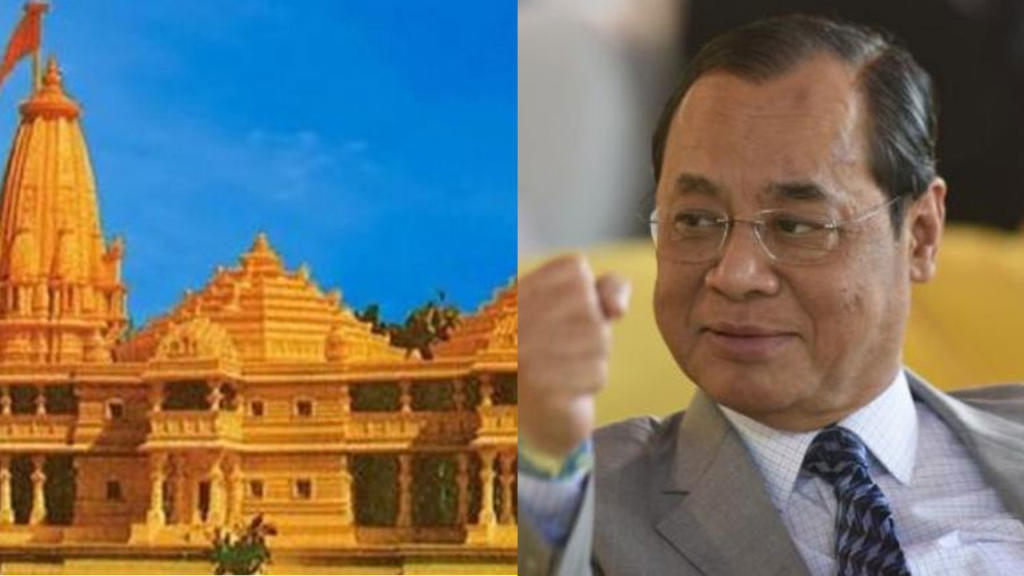To all the citizens of India, directly or indirectly involved in the Ayodhya dispute, 17th November, 2019 is a date etched firmly in their calendars- for it is the date acting as the unspoken deadline for the resolution of the Ayodhya title dispute. The 8th March decision of the apex court, in which the dispute was transferred to mediation, has been rendered futile as the mediation has failed to reach a consensus. Now, the Supreme Court has paved way for daily hearings, beginning on 6th of August, 2019.
On September 30, 2010, the Allahabad high court had delivered a verdict to divide the 2.77 acre Ram Janmbhoomi- Babri Masjid land in Ayodhya into three equal parts, one part each to Ram Janmbhoomi Nyas, Nirmohi Akhara and Sunni Waqf Board. However, since this wasn’t prayed by either of the 3 parties, they had filed an appeal against the verdict to the Supreme Court. In 2011, the SC stayed the HC verdict. However, the case remained stagnant as being a sensitive political case, the SC judges refused to touch the case.
Under the UPA era, the Ram Mandir opposing parties tried their best to delay the proceedings and stretched the matter as much as possible. The case gained momentum in 2017 when SC constituted a three-judge bench to hear pleas challenging 1994 verdict of the Allahabad HC. However, the delaying tactics continued.
In one of its attempts to delay the judgment, on 5th December, 2017, during the proceedings, Kapil Sibal, the lawyer representing the Sunni waqf board pleaded before the court that hearing in the Babri Masjid demolition case be deferred until after the 2019 Lok Sabha elections. Nevertheless, the court rejected this and the proceedings continued.
The petitioners went as far as to challenge the 1994 decision of the Supreme Court in the Ismail Faruqui case by seeking a review using a larger bench. Delaying tactic as it was, the three judge bench consisting of Chief Justice Dipak Misra, Justice Ashok Bhushan and Justice Abdul Nazeer declined to review the verdict and stated that the matter didn’t need to be referred to a larger bench. The bench made it clear that as held in the 1994 case, the mosque was not an essential part of Islam and Namaz can be offered anywhere. Moreover, the case was also understood as a matter of land acquisition proceedings. It also observed that any religious place cannot enjoy immunity from compulsory acquisition, and the observations with respect to mosque were made in that context.
The judgment was delivered on 27th September 2018, with Chief Justice Misra due to retire on October 2, 2018. The Supreme Court also said the civil suit on the Ayodhya land dispute would be heard by a newly-constituted three-judge bench on October 29. Thus, former CJI Misra did his bid to remove the hindrances and pave way for the proceedings.
On March 8th, 2019, SC referred the dispute for mediation to a panel headed by former apex court judge FMI Kallifulla. The panel also consisted of well-known mediator and senior advocate Sriram Panchu and spiritual leader Sri Sri Ravishankar. The likelihood of a decision arising through mediation was slim at best, nevertheless, in order to ensure fairness and equity in the matter, mediation proceedings were conducted.
The fact that the mediation isn’t doing anything fruitful to adjudicate the case was visible when on May 9th, an interim report was submitted to the SC. Thereafter, the SC extended time until 15th August to complete the mediation proceedings. A fortnight before the assigned deadline, on 1st August, a report was submitted to the SC, outlining the failure to reach a conclusion.
Thus, after a delay of 155 days, it was declared by the SC that day-to-day hearings will be conducted from August 6th. A five-judge Constitution Bench headed by Chief Justice Ranjan Gogoi and constituting of SA Bobde, DY Chandrachud, Ashok Bhushan and SA Nazeer will oversea the proceedings hereon.
Now, after 9 years of delays and lapses, despite overwhelming evidence available against the Sunni Waqf board’s claims, the proceedings in Ayodhya case seem to be on track. Former CJI Misra had cleared most of the hurdles in the case and the rest of the hindrances, including the elections and mediation proceedings have safely been dealt with. Moreover, with the daily hearings, there is nothing stopping the judgment to be delivered without any hindrances. Regardless of the outcome, the dispute needs to be settled once and for all and cannot be stretched out in eternity. CJI Ranjan Gogoi had adopted a very positive approach towards dealing with the Ayodhya issue, hence, his retirement date of 17th November, 2019 is being viewed as the unofficial deadline within which the matter in all likelihood is expected to be resolved.
